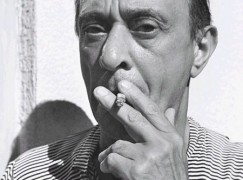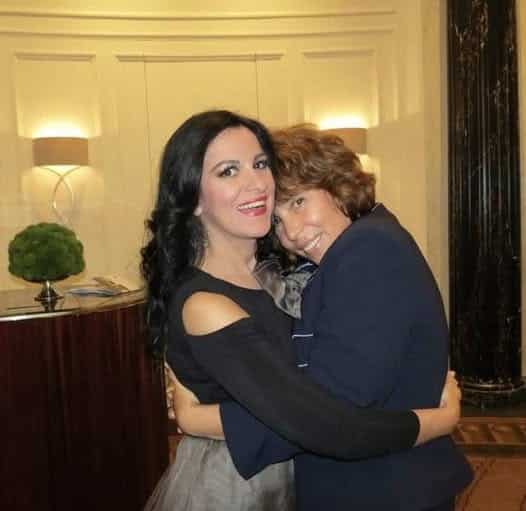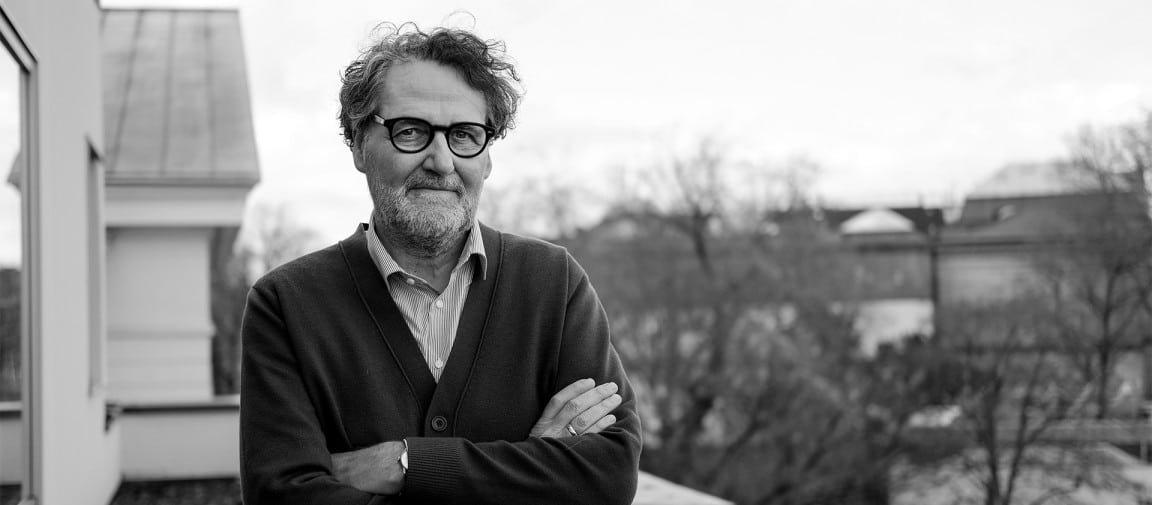Leonard Slatkin: Are we really ‘stronger than this’?
mainFrom the conductor’s latest journal:
… Just a few blocks away from our lodgings in Manhattan, evacuations due to packages with incendiary devices caused a massive search for answers with conspiracy theories popping up in haste with no evidence to support them. With potential life-threatening consequences to politicians and journalists, as well as any others in the crossfire, there was a palpable sense of anxiety in the Big Apple.
Less than 24 hours later, as we were packing up for our trip, the news out of Pittsburgh was terrifying, but sadly, part of the fabric of our society today. The acts of individuals and fringe groups make each of us look even more regularly over our shoulders. We do not know what is next. And none of us has any reasonable solution, including me.
Have we come to the point where the sacrifice of certain freedoms is inevitable? Will we be reporting anything that seems odd or suspicious, only to learn that we might be hurting good people unintentionally? Is the level of vitriol and hate at a point where we cannot return to a civilized discourse? Has our constitution become outdated, making the great American democracy an experiment in failure? While we constantly are told that “we are stronger than this,” is this really true?…
Read on here.






It all starts at the top. Donald Trump, his enablers and fans, the Republican Party, the NRA, etc. all have blood on their hands today. Not that they didn’t before.
Right! and Obama has the blood of dozens of children on his hands. (Newtown/Sandy Hook)
Obama issued gun control orders which Trump repealed. Unfortunately he didn’t have control of Congress for much of his Presidency, so was limited in the actions he could take. So yes, it’s all the fault of the Republicans and their gun-mad friends that Americans continue to hate and kill.
As presidential candidate and president Trump embraced the NRA narrative on guns.
As a private citizen, after the Sandy Hook massacre, Trump tweeted:
“President Obama spoke for me and every American in his remarks in #Newtown Connecticut.”
https://twitter.com/realDonaldTrump/status/280754630047199232?ref_src=twsrc%5Etfw%7Ctwcamp%5Etweetembed%7Ctwterm%5E280754630047199232&ref_url=https%3A%2F%2Fwww.businessinsider.com%2Ftrump-celebrated-obamas-call-for-gun-control-after-sandy-hook-2017-10
Here are some of Obama’s remarks:
“We will be told that the causes of such violence are complex, and that is true. No single law — no set of laws can eliminate evil from the world, or prevent every senseless act of violence in our society. But that can’t be an excuse for inaction. Surely, we can do better than this. If there is even one step we can take to save another child, or another parent, or another town, from the grief that has visited Tucson, and Aurora, and Oak Creek, and Newtown, and communities from Columbine to Blacksburg before that — then surely we have an obligation to try.”
https://www.businessinsider.com/trump-celebrated-obamas-call-for-gun-control-after-sandy-hook-2017-10
If you’ve been paying attention to what’s going on, there’s been a lot of hate coming from the left lately. There have been many expressions of anger and hate directed towards conservatives. Remember Steve Scalise? This is not a left/right issue. It’s not a gun control issue. There are many people with serious mental health issues that are not being addressed. The easy – and constitutional – access to guns makes it worse. Leaders on both sides of the aisle have failed us. So has Hollywood, TV and video game makers which continue to flood our minds with violent, bloody and evil images.
People do not kill people. People with guns kill people. Check other countries data.
It’s bullets that kill. Destroy all the ammunition.
Like Brazil or Russia with their strict gun control laws ?
You are making some valid points, especially about neglected mental health issues. How exactly is the current government addressing mental health? By undermining an admittedly imperfect law on health care, instead improving it?
What gun control orders? The one I know is the one that made it mandatory for the Social Security Administration to release information about mentally ill recipients of Social Security benefits. That would not have stopped any of the mass shootings that I know of. How many mass shooters were on social security disability? I will also point out the the ACLU even opposed that order by Obama. All it did was further stigmatize the mentally ill.
Here is a 2016 report on Obama’s gun control actions:
https://www.forbes.com/sites/katiesola/2016/01/06/obama-gun-control/#61bfeb953f36
This is the first I have heard of lists of people with mental illness on SSI being on the “no guns” list to which licensed gun dealers have access. As a psychiatric nurse I find the issue of releasing lists of people with mental illness a real toughie. You do not want a gun dealer, who is not committed to a confidentiality requirement to maintain his license the way a medical or social service professional is, reviewing a list of people to see who has a record of mental illness in his community, especially since less than one percent of those with mental illness and probably less than 10% of those who are even hospitalized with mental illness would ever shoot anybody and there still remains a large stigma with regard to mental illness Nevertheless, I know the mass shooting in 2006 at the University of Virginia I believe it was might have been avoided if the gun dealer knew that the shooter had a history of mental illness since the shooter bought the gun through a licensed dealer. However, most criminals obtain guns through illegal means.
Nevertheless if one makes guns more difficult to obtain gun violence is reduced most of the time. There is less gun violence proportionately in New York City in comparison with Miami because gun control laws are stricter.
Not just the US either. The easy availability of guns in the US means large number of weapons get smuggled into Mexico, arming the drugs cartels. The groups are largely armed from the US but destabilize Mexico (and out-gun their law enforcement groups).
NRA not Obama.
Rich C. lacks common sense and basic morality.
And I am not afraid to use my full name, jackass.
Norman, I doubt you’ll approve this comment, but you need to stop the anti-semitic comments from being approved on this blog.
Step up your moderating.
Right wing fanaticism has been growing since the Reagan administration due to his deregulation of the media. This allows for a constant bombardment of partisan politics that spirals downward to evermore extreme positions. We see the effects from the Oklahoma City bombing to the recent Pittsburgh massacre. Do we need to return to a equal time policy in the media so that people are more inclined to consider both sides of the tortilla?
“Everyone is entitled to his own opinion, but not his own facts.” (Daniel Patrick Moynihan)
Science and statistics is a good place to start when it comes to divisive issues.
– Violent crime fell 48 % in the US between 1993 and 2016.
http://www.pewresearch.org/fact-tank/2018/01/30/5-facts-about-crime-in-the-u-s/
– Gun related deaths were relatively stable between 1999 and 2007, and have risen by 40%-50% since then.
https://en.wikipedia.org/wiki/Gun_violence_in_the_United_States
– On a state-by-state level, higher per capita gun ownership is correlated with a higher number of gun deaths.
https://www.usatoday.com/story/news/nation/2018/02/21/states-most-and-least-gun-violence-see-where-your-state-stacks-up/359395002/
– Hate crime in major US cities is on the rise for a fourth consecutive year.
https://www.washingtonpost.com/news/post-nation/wp/2018/05/11/hate-crime-rates-are-still-on-the-rise/?utm_term=.b1a9411dc46b
– Data on climate change is overwhelming. There is no controvery about it in the scientific community.
https://climate.nasa.gov/
“One of my composition teachers, Mario Castelnuovo-Tedesco, used to say that ‘music needed to have three elements: melody, harmony and rhythm.’ As the Sixties drew to a close, composers such as Ligeti, Penderecki, Crumb and Erb added a fourth—sound.”
Is that true? Is ‘sound’ as a musical element absent from Stravinsky, Ravel, Debussy, Schoenberg? Or from the classics all the way back to Mozart – who carefully scored his works as to create special mixtures of sound? Or Bach’s Brandenburg Concertos, with their particular, prominent ensemble sounds? Even Brahms’ music, which abstains from coloristic effects, and where the sound is achieved by careful distribution of weight and voice leading, is entirely dependent upon the effect of the sound of the total.
As an independent element, sound is not a musical category, it only obtains meaning as a means of melody, harmony and rhythm, as the German sonic artist Lachenmann ampy demonstrates:
https://subterraneanreview.blogspot.com/2015/11/be-liberated.html
He might mean ‘noise’, not ‘sound’. The argument comes from Varèse.
Perhaps I did not state it as clearly as I wished. Of course sound was always a part of music. The point was that the three elements my teacher spoke of could be dealt with individually as well as together. The composers I mentioned simply removed them and focused, in some works, exclusively with the sonic characteristics, just a Cage dealt with silence.
OK…. but didn’t this remove the dimension from music which is its heart: musical meaning? Sound is a physical property, objectively so, but the thing that gives meaning to any musical work does not exclusively lie on the level of sound, in the same way that language is not the sound it makes but the meaning that lies in the words and their combinations. There is nothing against sound art (as there is nothing against Warhol’s Brillo Boxes) but it could not possibly be called ‘music’.
Music isn’t sound, that is merely how it is conveyed. Similar to the way a painting isn’t paint, but an organization of images. Crumb defined music as a system of proportions in the service of a spiritual impulse. It follows a path from spiritual impulse to a system of proportions to sound.
Ives also saw music not as sound but as a representation of something transcendental.
It is yet to be recognized that his work is the fullest and most complete realization of the transcendentalists. He felt the music of the future would evolve some deeper relationship to the music of the universe as he termed it.
Later thinkers, especially people like Pauline Oliveros, suggested that music lies not with sound or composers but with the depth of listening itself. It is through listening deeply that music comes into existence. For her, deep listening to any sound reveals something about our existential condition, a unity in multiplicity, a system of proportions that reveals the spiritual nature of the universe.
Whether right or wrong, these ideas are worth following. They reveal the deeper meanings of the elements of music. And it ties the two strands of Leonard’s essay together. Tolerance and open mindedness are pathways to learning and wisdom.
So much to elaborate, but I have to go pickup my wife at the trains station…
Yes it is an important theme.
But Crumb and Ives took such transcendental ideas too literally, thinking that they could ‘translate’ them onto the material level, without transforming them through the imagination and using the expressive dimension of music to ‘say’ what they wanted to say. It is the same with Kandinsky and Rothko in their ‘painting’: full of spiritual intention and ideas, and then completely failing to express them because deleting the very component which could have helped them to make their works really ‘speak’.
http://johnborstlap.com/why-ives-is-not-a-great-composer/
As for Oliveros: music is received, perceived, understood, in the listening process, but of course the art form is not located in the listening process. It is like language: when I say something to another person, there is a communication process which means that I express some content which is arriving at the other end where it is (hopefully) understood, but the content is MY initiative and creation, NOT the product of the receiver. The person who is at the receiving end, interprets the message, and indeed he can make his own version of it, and that is what we call ‘misunderstanding’.
To locate the art form of music at the listeners’ end, is nonsensical. ‘Deep listening’ is something quite different:
https://www.futuresymphony.org/deep-listening/
Many of such naive and primitive ideas about music are mere nonsensical remnants from the hippy period.
‘Painting?’ Or, simply, painting? I’ve never experienced paintings that spoke (all-but-audibly, as if humming) as I did at the Guggenheim’s Rothko retrospective in 1978. Opened my eyes — and ears — as few things have before or since. I wonder if some contributors actually listen, or look, before theorizing…
These views are by necessity subjective. Many people, for example, find the music of Crumb deeply moving. They find his sonic metaphors deeply compelling and revelatory.
Communication is not just speaking. It is a complex Gestalt of speaking and listening working together with infinite complexity. The 19th century promoted the idea of the Artist-Prophet, an inspired figure that delivered truths to the people. Speaking was stressed more than listening, and that still shapes our view of the arts.
Perhaps the most important contribution of the 20th century to our aesthetic theories is that it created a better balance between speaking and listening. And was that message not urgently important in a society reduced to the banalities of mass markets? And in a world where composers are inclined to suffer ideologically induced deafness? Without creative listening, creative music slowly ceases to exist.
Of course without ‘creative listening’ the art form is pointless. But there must be something to creatively listen to, in the first place, and it is there where the initiative lies, the listener is the more passive component in the organic ensemble of creator, interpreter and listener. It is the architect who builds the house, not the occupant for whom it is destined.
And then, people like Xenakis, Boulez, Stockhausen, Ligeti etc. deleted the part of the listener completely from their work and presented it as ‘objects’ with a meaning only located in the work itself, instead of part of a cultural exchange. That disrupted the fragile musical tradition more than the 19C musical priest cult.
‘It is not for the audience, not for the performer, not even for myself, it is a thing in itself’ (Ligeti about his work).
JB writes: “the thing that gives meaning to any musical work does not exclusively lie on the level of sound, in the same way that language is not the sound it makes but the meaning that lies in the words”
Huh? Some classical music has some kind of programme behind it you are supposed to hear (but usually have to be told about if you want to actually hear it). But, unlike language, must classical music doesn’t. It is just a bunch of sounds which we either enjoy or we don’t. A Haydn quartet, a Mozart concerto, or a Brahms symphony doesn’t actually mean anything.
The meaning in music is not conceptual meaning as in language, but musical meaning, which lies in the emotional realm. We don’t listen to a Haydn quartet as if we were reading a book, but experience the effect of the aural patterns emotionally, as such music is a trajectory through different emotional territories, created by the internal dynamics of the piece. The value and meaning of abstract music does not lie in its sound patterns but in what they convey. It is only ‘abstract’ in the sense of ‘non-conceptual’.
A Brahms symphony may seem like an entirely abstract sound pattern structure, but that is only the means; what it conveys is filtered-out life experience embedded in its internal workings, and that is what we hear in the music and which has both an emotional and aesthetic effect, or – said differently: an aesthetic effect experienced emotionally (as all aesthetic effects are).
Therefore, the relevance of (art-) music lies in its not being conceptual. When there is a programme behind the piece, this is merely an indication, a sign post, to focus the listening experience, and this has always been rather controversial.
https://www.futuresymphony.org/the-relevance-of-classical-music-part-i/
What was posted here when an Islamic terrorist killed 8 in NYC just about a year ago?
If terrorism can’t be blamed on Trump then it should obviously be excused, minimised or ignored. Surely everyone knows that?
The media bears blame, as they sensationalize every incident and glorify the criminals with profiles and attempts to probe their “motivations.” We are presented with every national event as if it is local. This creates a hysterical atmosphere. None of this is really new. We’re just more saturated. The internet makes it all much more immediate than seeing it in print. We’re also getting much less detail and fact, and more emotional pull. It is the downside of the endless demand for false convenience, by doing everything online. Shopping is a nightmare whether in stores or online. The media is suffering because they don’t have the guts to compete with the internet. Everything is exaggerated. And the younger generations don’t know anything different. We need more leaders, and we need to listen to them more.
What do you expect when mass media is so commercialized and that what is broadcast is what brings in the most viewers i.e. “infotainment”?
Castelnuovo-Tedesco may have meant sonority, not sound. Sonority, or beautiful, lustrous tone quality, is something that developed in the 20th century, post-Impressionism, and with improvements in instruments and technique. Many great pieces, such as Andrzej Panufnik’s Sinfonia Concertante for Flute, Harp and Strings, emphasize sonority, as did Leopold Stokowski. This was an important development that is getting lost, or taken for granted. It is a key element in the American contribution to classical music. Europe has still not adopted it fully. And the Minnesota Orchestra, due in part to Maestro Slatkin, is an example of a highly sonorous orchestra.
“Sonority, or beautiful, lustrous tone quality, is something that developed in the 20th century, post-Impressionism, and with improvements in instruments and technique.”
???? In the 19th century, there was a composer called Richard Wagner, who – like Hector Berlioz before him – explored the manifold possibilities of instrumental sonorities, creating some of the most astonishing sonorities in existence. Not to mention Debussy, or even the early Stravinsky. The idea that ‘sonority’ is a new invention from postwar 20C, is a myth, part of the modernist ideology of ‘progress’.
Sonority without music is another art form.
And whose fault were the similar attacks at the Holocaust Museum and a Kansas City Jewish Center (not to mention numerous attacks perpetrated by Muslim terrorists) – Obama’s ? Slatkin, please stick to conducting (eye roll …)
“Mark,” you lack all sense of decency or common sense. Grow up.
Imagine what air travel would be like if after each accident or crash we took the same approach as we do to gun violence and throw up our hands and either say “there’s nothing to be done”, or we only blamed pilot error or only blamed aircraft design and then went about our merry way.
It’s a gun control issue, it’s a mental health issue and it’s a cultural issue. And believing that if we somehow don’t address all of them and seek to protect the only little piece of turf of belief will solve the problem means the US only has many more years of pain and violence in its future.
Just like plane crashes are a combination of many factors. And air travel is now the safest it’s ever been because all issues from aircraft design to pilot error to whatever else have been addressed.
I attended as religious service at a synagogue in Pittsburgh in August and had a long discussion with one of the leaders of the Pittsburgh Jewish community. Although they have three Jewish day schools it is a relatively small, close knit community. This is devastating for them.
However, even for myself, a Jew, there may be a certain fatigue factor. I remember how emotionally shaken I was when I heard about a shooting in Israel at a Passover seder (ritual meal) at a hotel in Israel about 15 years ago. Since then, after hearing about attacks at so many religious institutions it has become so everyday I no longer have a real emotional reaction. Like they say, one death is a tragedy, a thousand deaths is a statistic.